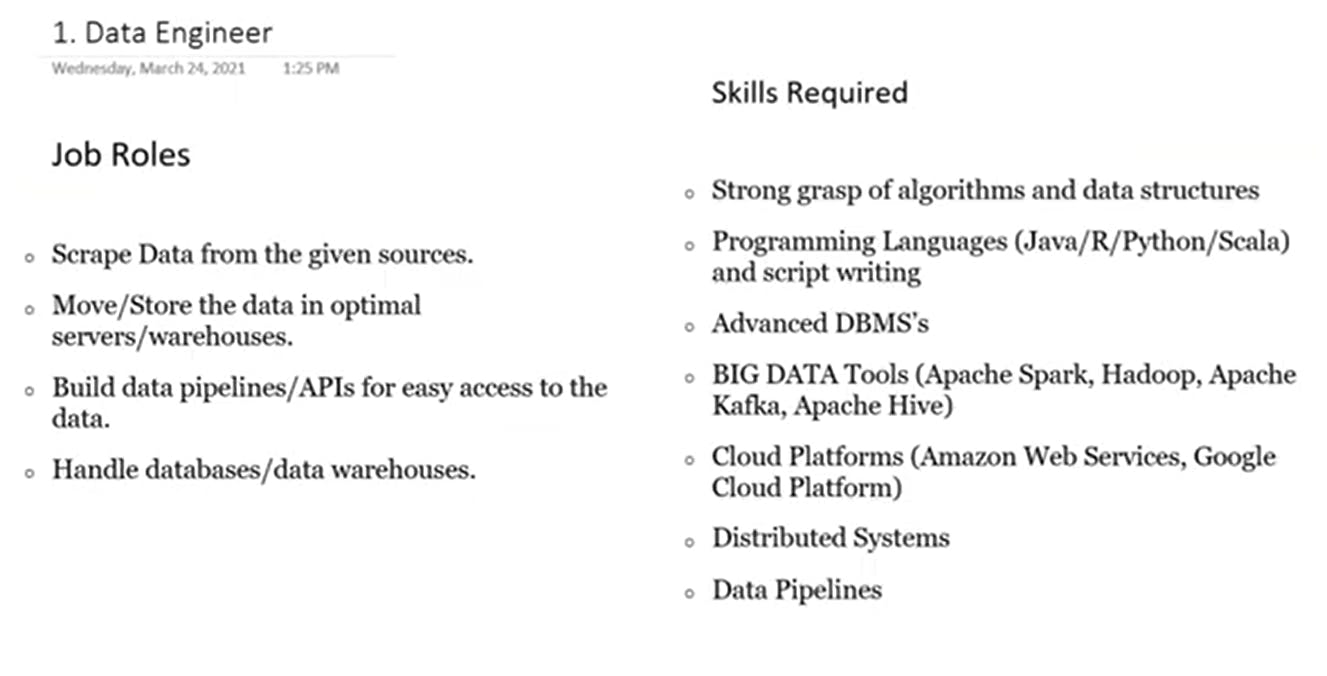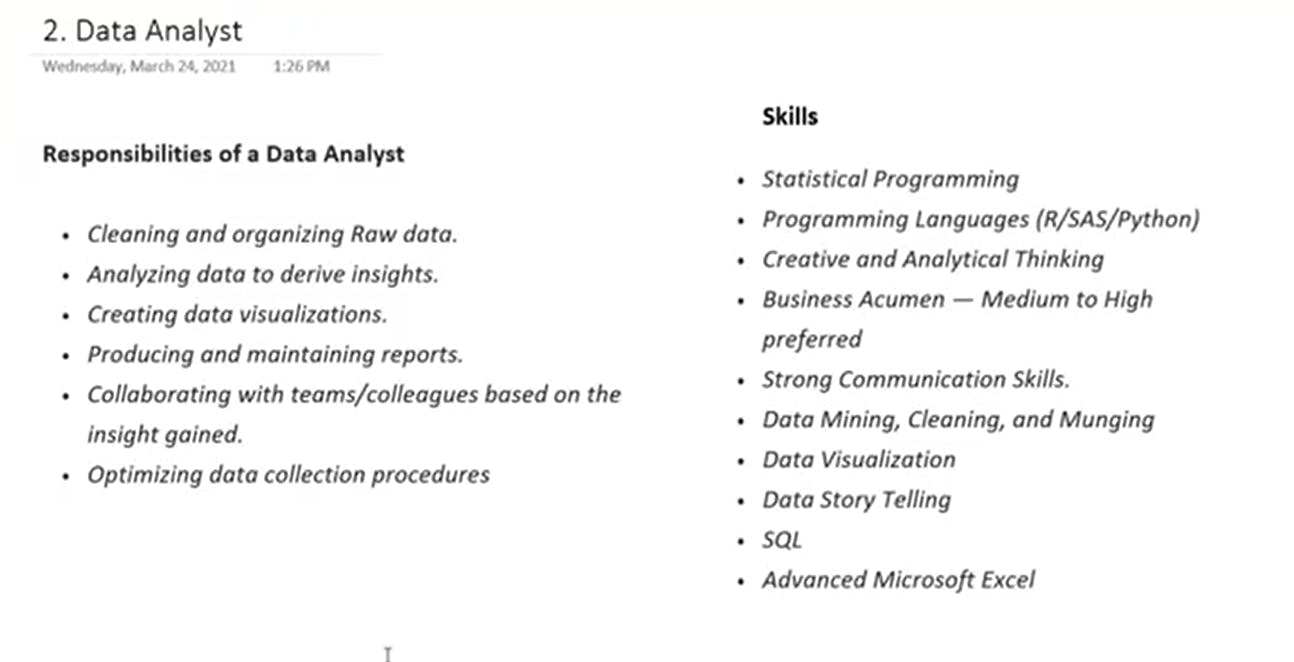
Data Engineer Vs Data Analyst Vs Data Scientist Vs Machine Learning Engineer
DAY10 : VARIOUS DATA BASED JOB ROLES
Table of contents
Data powers today's world. From unleashing innovations to improving decision-making processes, data holds the potential to unlock the success of every industry. The world, as we know, it has been transformed radically by data such that it’s crippling to function without the insights generated from data in any domain.
Hello troubleshooters in today's article we're going to get to know about the most interesting and emerging filed of computer science which revolves around building block of any technology. These days you keep hearing a new paradigm, ‘Data is the new Oil.’ Not only that, ‘Data is the new natural resource,’ ‘Data is Wealth,’ ‘Data is Money’ and so on.
Let us understand how does Data work as Oil – beyond its implied meaning that it is a source of wealth for the people who amass, process and market it.
Oil is buried deep under the Earth and Ocean in abundance that can be mined, processed, distributed so that users can consume it.
Data is to be mined from millions of users who generate it on daily basis as part of their daily routine – work life and personal life. Data is getting generated as you speak, as you write, as you shop, as you socialize (online and offline) and as you work. It can be in the form of text, image, audio, video or even coded languages. It may be structured in specified format or unstructured without following any rules.
Let's understand each job role depending upon their importance at industry level :
1. DATA ENGINEER
Data Engineers are the intermediary between data analysts and data scientists. As a data engineer, you will be responsible for the pairing and preparation of data for operational or analytical purposes. A lot of experience in the construction, development, and maintenance of the data architecture will be demanded from you for this role. Usually, in this role, you will get to work on Big Data, compile reports on it, and send it to data scientists for analysis.

2. DATA ANALYST
A Data Analyst occupies an entry-level role in a data analytics team. In this role, you need to be adept at translating numeric data into a form that can be understood by everyone in an organization. Moreover, you need to have required proficiency in several areas, including programming languages such as python, tools such as excel, fundamentals of data handling, reporting, and modeling. With enough experience under your belt, you can gradually progress from a data analyst to assume the role of a data engineer and a data scientist.

3. DATA SCIENTIST
A Data Scientist employs advanced data techniques such as clustering, neural networks, decision trees, and the like for deriving business insights. In this role, you will be the senior-most in a team and should have deep expertise in machine learning, statistics, and data handling. You will be responsible for developing actionable business insights after they get inputs from Data Analysts and Data Engineers. You should have the skill-set of both data analyst and data engineer. However, in the case of a data scientist, the skill sets need to be more in-depth and exhaustive.
4. MACHINE LEARNING ENGINEER
Machine learning engineers act as critical members of the data science team. Their tasks involve researching, building, and designing the artificial intelligence responsible for machine learning and maintaining and improving existing artificial intelligence systems.
Often, a machine learning engineer will also serve as a critical communicator between other data science team members, working directly with the data scientists who develop the models for building AI systems and the people who construct and run them.
4.1 Responsibilities of Machine Learning Engineer include:
Deploying machine learning models to production ready environment
Scaling and optimizing the model for production
Monitoring and maintenance of deployed models
4.2 Skills required to be a Machine Learning Engineer:
Linear Algebra, Calculus
Probability and Statistics
Programming Languages (R/Python/Java/Scala mainly)
Distributed Systems
Data model and evaluation
Machine Learning models
Software Engineering & Systems design
That's all for the job roles of the data domain. In the upcoming articles we would be heading out towards in depth understanding of Tensors in machine learning.
Read till here thanks a bunch:)
